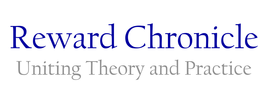|
Companies employ various methods of sales compensation to get the most from their sales teams, with one popular method being the sales contest. A recent French study examined if such contests can have a negative effect on aspects of salespeople’s behavior, particularly the quality of their customer listening, which in turn would affect their relationships with customer. The results indicated that under certain conditions customer listening was adversely affected by sales contests.
Key Topics: Sales compensation; Sales contests; Customer listening
Title of Reviewed Article: The impact of sales contests on customer listening: an empirical study in a telesales context
Researchers: Maryse Koehl, Juliet F. Poujol (University of Montpellier), and John F. Tanner Jr. (Old Dominion University). Publication: Journal of Personal Selling & Sales Management, 2016, Vol. 36 No. 3, pp. 281 – 293. __________________________________________________________________________ Setting the Scene The ability of salespeople to adapt to their customers’ needs is central to developing strong customer relationships (e.g. Castleberry & Tanner 2014). Several prior studies have highlighted the importance of ‘customer listening’ in sales people being effectively customer orientated as it helps to understand the customer needs (Baroom, Goolsby, & Ramsey, 1998), to analyze customer problems (Leong, Busch, & John, 1989), and tailor products and services to the customer needs (Baroom, Goolsby, & Ramsey, 1998). Good customer listening has also been shown to have a positive effect on customer trust, satisfaction, and loyalty (De Ruyter & Wetzels, 2000) and sales performance (e.g. Drollinger & Comer, 2013). Companies often use sales contests as short term mechanisms to focus salespeople on specific goals, typically increased sales (Lim, Ahearne, & Ham, 2009). While sales contests can have various positive effects there can also be negative consequences such as salespeople employing aggressive sales techniques, less patience with their customer in their desire to sell more, and focusing on the contest to the detriment to the customer (Murphy, 2004; Sharma & Sarel, 1995). When salespeople engage in behaviors such as these their ability to listen to the customer effectively is likely to be negatively impacted. Listening research has typically separated the dimensions of listening from the processes of listening (Koehl, 2014) and based on prior research the researchers of this study established a listening process with the three steps of Hearing, Processing, and Responding, and four dimensions of customer listening, namely passive, active, adaptive, and assertive listening. Passive listening involves listening to customers’ needs while being receptive and welcoming. Active listening involves being focused on what the customer is saying and using responses to formulate further questions and key points. Adaptive listening sees salespeople adapt their responses to customer needs and questions, while assertive listening leads to affirmative responses to customer needs and formulating rapid conclusions. This study examines these listening processes and dimensions under sales contest conditions. The researchers outline a number of research questions for investigation: Hypotheses 1-3 - A sales contest has a negative impact on (H1) Hearing (H2) Processing (H3) Responding. How the research was conducted The study examined the listening behaviors of 90 telesales agents in a French telecommunications company, who took part in a sales contest over a four-week period. These agents worked in an inbound call center which managed the customer portfolio of a large mobile phone provider. Sales calls were unscripted. The customer listening practices of agents was assessed before and during the contest in order for the researchers to assess behavior in the presence and absence of a sales contest. The sales contest was designed by the company in question with the objective of increasing sales of options and upselling. The contest awarded prizes (electronic equipment) based on sales volume. Prizes were awarded based on both individual and team performance. In order to evaluate customer listening practices the researchers monitored the agents’ sales calls. The evaluations of practices of customer listening were based on four listening dimensions that reflect four listening techniques, determined by the researchers, which included passive listening, active listening, adaptive listening and assertive listening. The researchers rated these dimensions on a good-bad 7-point scale while listening to calls in real time. Key Research Findings The results indicated that sales contests have a negative effect on both active and passive customer listening. The negative impact on active and passive customer listening is expected to affect the Hearing and Processing listening steps and result in lower quality customer listening, thus Hypotheses 1 and 2 were supported by the results. Adaptive and assertive customer listening was also found to be worse during sales competition, but the differences were not significant, and so Hypothesis 3 was not supported. Results Commentary The results indicate that overall the standard of customer listening did decline as a result of there being a sales competition, although as all steps in the listening process were not affected similarly then the negative effect could be considered partial rather than global in nature. The results also indicate that certain types of listening may be less important than others in relation to meeting short-term sales goals. The researchers suggest that this reduced customer listening may be due to salespeople being more focused on presenting the customer with new offers. Although as adaptive and assertive listening are not significantly negatively affected it would suggest forced sales due to pressure do not occur and although agents may fail to hear the client or are less involved in the conversation, they were typically able to still offer responses that were consistent with sales objectives and advising customers. This could potentially be due to sales agents strategically omitting certain things from their sales calls in order to more efficiently make sales. Organizational and Reward Implications This study highlights a potential adverse effect of implementing sales contests, namely that customer listening is likely to be negatively affected. While the short term negative effects on sales were not established by the study it is likely that poor listening would be detrimental in the longer term. In order to counteract this, as part of sales contests, companies should implement qualitative goals relating to maintaining high quality customer relationships, in addition to qualitative sales goals. Additionally, training of salespeople on how to listen effective to customers as well as simply how to sell would likely lessen the negative impact on listening. Final Thoughts This study integrates various theories to help our understanding of salesperson performance, with the results highlighting the potential negative impact sales competition can have on customer listening. As this study focused on one type of sales situation, it would be interesting to see in future research how customer listening is impacted in different sales situations. Also, future research examining the impact of poorer customer listening over the longer term would be extremely valuable. __________________________________________________________________________ Source Article: Koehl, M., Poujol, J. F., & Tanner, J. F. (2016). The impact of sales contests on customer listening: An empirical study in a telesales context. Journal of Personal Selling & Sales Management, 36(3), 281-293. Published by: Routledge / Taylor & Francis Group For further details and access to the full journal article Click Here (subscription or payment may be required). __________________________________________________________________________ References: Baroom, M. L., Goolsby, J. R., & Ramsey. R. (1998). Relational Communication Traits and Their Effect of Adaptiveness and Sales Performance. Journal of the Academy of Marketing Science, 26(1), 16–30. Castleberry, S. B., & Tanner, J. F. (2014). Selling: Building Partnerships. Burr Ridge, IL: McGraw-Hill. De Ruyter, K., & Wetzels. M. G. (2000). The Impact of Perceived Listening Behavior in Voice-to-Voice Services Encounters. Journal of Service Research 2(3), 276–283. Drollinger, T., & Lucette, B. C. (2013). Salesperson’s Listening Ability as an Antecedent to Relationship Selling. Journal of Business and Industrial Marketing 28(1). 50–59. Koehl, M. (2014). Theories and Practices of Customer Listening: An Exploratory Qualitative Study with Banking Telesales Agents in France. International Journal of Economic Practices and Theories, 4(5). 562–571. Lim, N., Ahearne, M. J., & Ham, S. (2009). Designing Sales Contests: Does the Prize Structure Matter? Journal of Marketing Research, 46(3), 356–371. Murphy, W. (2004). In Pursuit of Short-Term Goals: Anticipating the Unintended Consequences of Using Special Incentives to Motivate the Sales Force. Journal of Business Research, 57(11), 1265–1275. Arun, S., & Sarel, D. (1995). The Impact of Customer Satisfaction Based Incentive Systems on Salespeople’s Customer Service Response: An Empirical Study. Journal of Personal Selling and Sales Management, 15(3), 17–29. Comments are closed.
|





